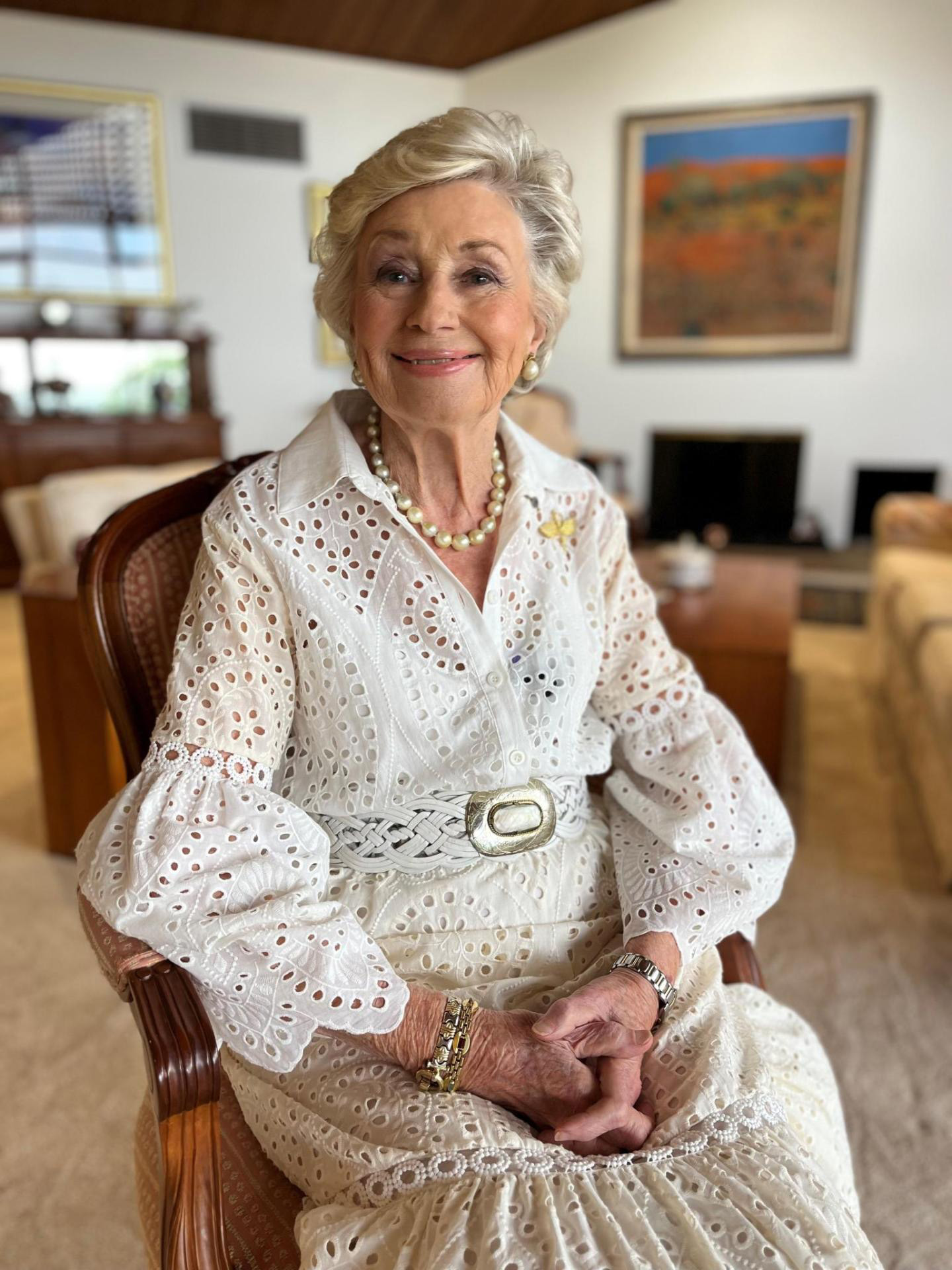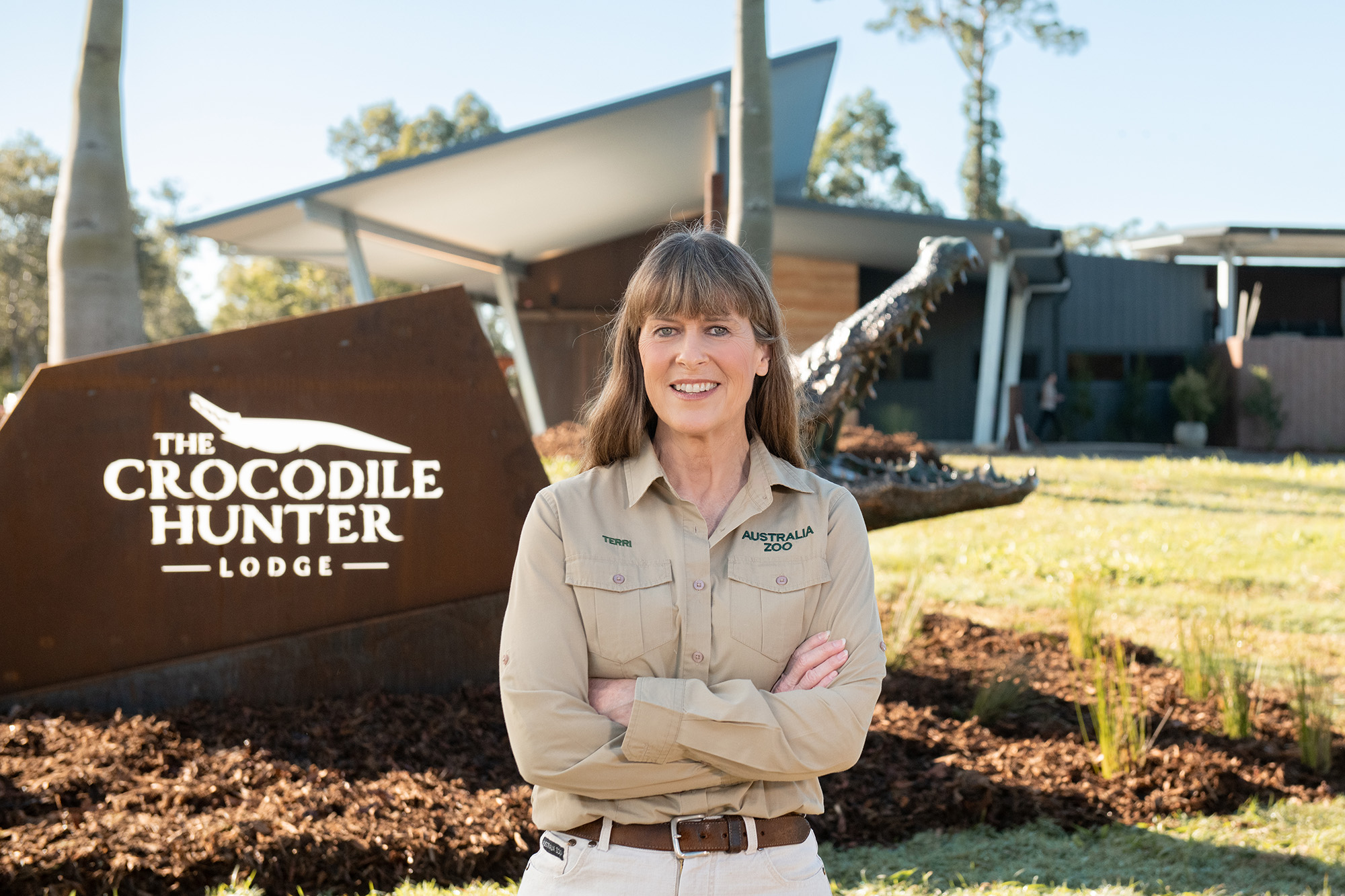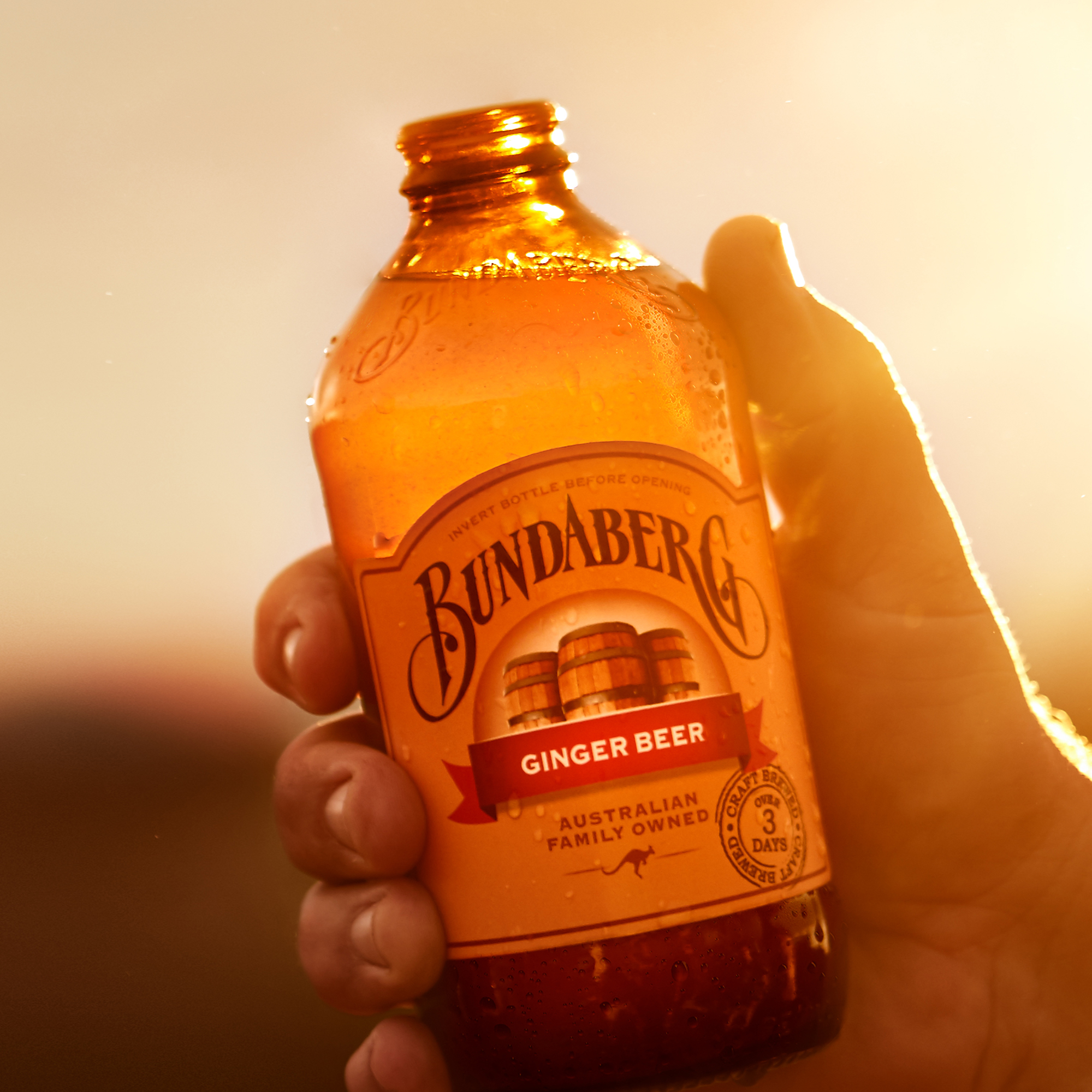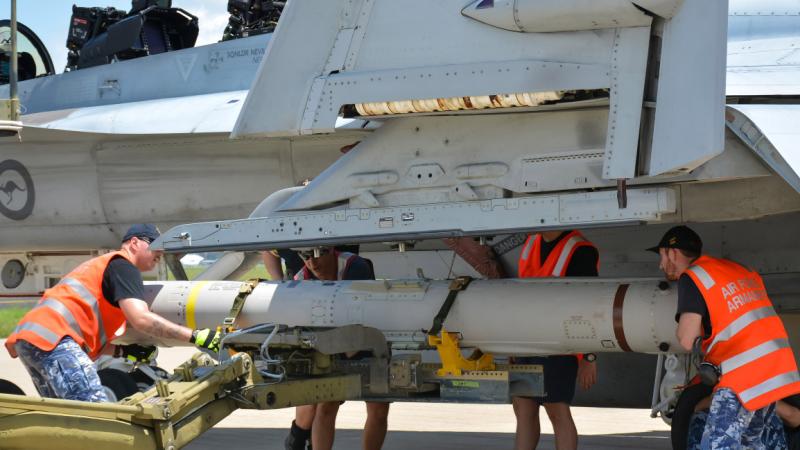The 14th annual Queensland Business Leaders Hall of Fame welcomed six new inductees at a gala dinner in Brisbane last night, celebrating outstanding business leaders and their contributions to the state.
The inductees for 2023 ranged from conservationist and Australia Zoo owner Terri Irwin AM to medical testing laboratory Sullivan Nicolaides Pathology. Also recognised was business college and employment agency trailblazer Lorraine Martin AO, international soft drink company Bundaberg Brewed Drinks, stockbroking and wealth management firm Morgans Financial Limited and the late leader of industry and business Sir Arthur Petfield.
Established in 2009 by QUT, the State Library of Queensland and the Queensland Library Foundation, the Hall of Fame has so far recognised more than 80 of business leaders for their public contribution to the state’s reputation, and economic and social development.
To be eligible for induction, nominees were considered on criteria of outstanding leadership, ethical and moral conduct, financial contribution to Queensland’s economy, innovation, social and inclusive leadership, sustainable practices, and global impact and influence.
The inductees were celebrated at the black-tie event at the Brisbane Convention and Exhibition Centre attended by more than 800 people.
The 2023 inductees are:
Lorraine Martin AO
Born in the 1940s at a time when women were expected to “find the right man, have a family and become a Stepford wife”, Ms Martin emerged as a trailblazing business pioneer.
Leaving school at age 15, she found employment at wool firm Elder Smith, then worked for barrister Wally Campbell who would later become the Governor of Queensland and who Ms Martin described as her first mentor.
She married a lawyer and had three children by age 24, and later studied English and Fine Arts. After initial thoughts of becoming an English teacher, she was offered a role as a commercial teacher but opened her own college instead.

Lorraine Martin College – teaching shorthand, typing, bookkeeping and grooming – was established in October 1976 with only three students. By Christmas that year, there were 90 students enrolled.
At its height, it was the largest private provider of vocational students in Queensland. Ms Martin also opened an employment agency know as Lorraine Martin Personnel and started Queensland’s first private English Language College known as Queensland English Language Centre (QELC).
Lorraine Martin became a household name after Lorraine Martin Personnel won the tender as official employment agency to recruit, train and supervise all attendants and volunteers at Brisbane’s World Expo 88 that put Queensland on the international stage.
In 1987 she opened the Queensland chapter of Les Femmes Chefs d’Entreprises Mondiales (World Association of Women Entrepreneurs) known in Australia as “Women Chiefs”. She became Australian President and went on to establish other chapters in Tasmania, South Australia and West Australia. During her career, Lorraine Martin sat on more than 30 boards and committees, often as the only woman.
She was named Officer of the Order of Australia (AO) in 1994 for her services to business and commerce, particularly in the field of education and training.
Ms Martin was inducted into the Queensland Business Leaders Hall of Fame in recognition of groundbreaking visionary contributions of national significance to private education businesses and for enduring and significant community services.
“I’m very proud of the legacy that I’ve left,” Ms Martin said.
“I think I was a pioneer. I look back now in retirement at what I’ve done, and I am incredulous. I don’t know how on Earth I did it. It’s like someone running a marathon – you don’t think when you are doing it, ‘What am I doing?’, it’s later you think, ‘How the heck did I do that?’
“I feel very satisfied with what I’ve done in this life. Very happy, very honoured and joyful that these opportunities have been offered to me.”
Sullivan Nicolaides Pathology
From humble beginnings as a small private pathology practice on Brisbane’s Wickham Terrace, Sullivan Nicolaides Pathology (SNP) has grown into one of Australia’s largest medical testing laboratories.
Started in July 1956 by Dr John Sullivan, the practice began with about 20 patients a day. Diagnostic pathology was a growth area and Dr Nick Nicolaides came on board the following year to help with an increasing workload.
The next decades saw an explosion of scientific knowledge and technology, automation and computerisation, along with the advent of universal health funding through Medibank (later Medicare). In the early 1970s, patient tests were reported in the hundreds but by the 1990s they were counted in the hundreds of thousands.
The practice joined with Sonic Healthcare in 1999, and now operates 500 collection centres across Queensland, northern NSW and the Northern Territory as well as 22 laboratories, mostly in private hospitals. It employs more than 3500 staff and tests more than 25,000 patients a day with a range of 1000 different tests.
A main, state-of-the-art laboratory at Bowen Hills, in inner northeast Brisbane, features an automated track system capable of processing more than 4,000,000 patients a year.
SNP also rose to the “big stress test” of collecting samples and testing for SARS CoV2 nucleic acid through the COVID 19 pandemic, including having 19,000 of these tests to process on Christmas Eve 2021.
SNP was recognised in the Queensland Leaders Hall of Fame for sustained excellence and innovation in the delivery of pathology services to Queensland and beyond.
Chief Executive Officer Dr Michael Harrison said the company was an “institution in Queensland”.
“Dr John Sullivan and Dr Nick Nicolaides were real pioneering scientists,” he said.
“They were both extremely hard working and highly moral people… they made sure that everyone who worked in their laboratory was aware that what we did was looking after patients. It was all about patient care. Of course, pathology underpins modern medicine and modern medicine couldn’t exist without pathology services. They knew that then and it is so today.
“John said he thought he bought a canary and it turned into an ostrich. He never envisaged this sort of growth.”
Dr Terri Irwin AM
Terri Irwin’s story has been one of “seizing opportunity” – from her family business in Oregon in the United States, to exploring Australia as a young adult, and “saying yes” to Steve.
Dr Irwin, an animal conservationist, owner of internationally renowned Australia Zoo at Beerwah on the Sunshine Coast, and wife of the late “Crocodile Hunter” Steve Irwin, has been recognised for her outstanding business leadership and for internationally recognised contributions to wildlife and habitat conservation and to Australian tourism.
Dr Irwin’s award follows Steve Irwin’s posthumous induction to the Hall of Fame in 2009.

Growing up in Oregon, Dr Irwin developed an early passion for wldlife when her father, a heavy-haul truck driver, would bring home injured wildlife. In her early 20s, she set up an organisation called Cougar Country, rehabilitating, and releasing animals such as cougars, bears and bobcats. She had 100 staff and saved about 300 animals a year.
In 1991, Dr Irwin travelled to Australia and stopped in at what was then the Queensland Reptile and Fauna Park where she met Steve Irwin and they “really sincerely hit it off immediately”. The couple married in 1992.
“This was a match made in heaven… that was the beginning of almost 15 years together,” Dr Irwin said.
“Destiny is an amazing thing. We can ignore it or embrace it. Certainly, when things happen if you don’t follow through, you may miss out on a wonderful circumstance.”
Dr Irwin invested in the expansion of the zoo after selling her house and business and moving to Australia. It went from two acres to now more than 700 acres; from two full-time staff to more than 450 and more than 100 volunteers.
With Dr Irwin’s skill in marketing and business and Steve’s passion as a storyteller, their wildlife documentaries and Steve’s enthusiastic on-camera style brought the zoo to an international market.
Following the tragic death of Steve in 2006 during the filming of documentary The Ocean’s Deadliest when he was fatally injured by a stingray barb, Dr Irwin kept the zoo on course, steering the business through the global financial crisis in 2009, floods in 2011, battles to prevent the Steve Irwin Wildlife Reserve on Cape York Peninsula from being mined, and the Covid pandemic.
She now planned to expand conservation projects and, looking towards 2032, she has goals of accommodating pre- and post-Olympic travel. Dr Irwin, 59, said she was in a “sweet spot” in her life, between “really knowing stuff and drooling in my soup”.
“I’m loving life right now and I’m feeling very lucky,” Dr Irwin said.
“I am proud to be continuing Steve’s legacy with his conservation work at Australia Zoo. Being recognised along with Steve is very humbling and special.
“After 31 years of running Australia Zoo, filming documentaries, and managing conservation projects around the world, I feel that this recognition is highlighting the passion and dedication I have for making positive change, as well as inspiring others to do the same.”
Bundaberg Brewed Drinks
It’s the iconic glass stubby recognised around the globe. Bundaberg Ginger Beer, the hero product of Queensland company Bundaberg Brewed Drinks, has promoted the small Queensland town that shares its name with Australia and the world.
In the words of Bundaberg Brewed Drinks founder and Master Brewer Cliff Fleming, it’s the “true blue brew that captured the hearts and the tastebuds of a nation”.

The fourth-generation, Australian family-owned business was established in Bundaberg in 1960. The iconic brewer began exporting its brew range in 1987, and later secured nationwide distribution in US retailing giant Costco.
Today, Bundaberg Brewed Drinks has sold its premium, craft-brewed beverages in 61 countries, has 300 employees in four countries and produces 700,000 bottles a day.
Unlike competitors, Bundaberg uses traditional recipes and methods to brew their range, with some flavours taking up to seven days to complete.
In 2022, financial comparison website Canstar rated them Australia’s number one soft drink in the Canstar Blue Most Satisfied Customer Awards (voted by consumers).
CEO John McLean said Bundaberg Brewed Drinks contributed $30 million in direct wages a year, working with local farmers to source as much local, homegrown produce as possible including, ginger, lemons, mangoes and blood orange.
“We contribute back to our local community. We build the business, we build the community together,” he said.
“We work with farmers to grow ginger in the local area, and we process 100 per cent of all our ginger in our farm 10 km from here. We buy mangoes from Australia, we buy lemons from Australia, and we buy as much local produce as we possibly can.
“Our brand recognition is just amazing. One in four households buy us, but 92 per cent of Australians know our brand.”
Board Director and daughter of original founders Cliff and Lee Fleming, Rae-Lee Fleming, said the business and the city of Bundaberg had a proud “shared history”.
“The Bundaberg region is a big part of who we are, and we are lucky enough to be representing the town across the globe – and that is something quite special,” she said.
“Our range of brews have become engrained in the lives of many consumers, and we’re very fortunate to have been part of countless special moments and family stories over the years,”
“Family is at the heart of everything we do and will continue to be long into our future.”
Bundaberg Brewed Drinks has been recognised in the Queensland Business Leaders Hall of Fame for its sustained success in international export markets and for significant contributions to Queensland manufacturing, agribusiness and to the economy of the Bundaberg region.
Sir Arthur Petfield
From junior office boy to general manager, Sir Arthur Petfield has been posthumously recognised for his role in taking a local Brisbane can manufacturer to one of the nation’s largest packaging companies.
Rising to the head of Queensland Can Company Limited and later United Packages Limited, Sir Arthur, who died in 1974, rose through the ranks in roles of accountant, company secretary, general manager, managing director and chairman.
Queensland Business Leaders Hall of Fame Fellow, Dr Robin Trotter, said Petfield was an “awe-inspiring figure” and a proud Queenslander who has “hands on” with the factories, loyal to his employees with a rapport for ordinary people and was remembered the “boss with a heart of gold”.
Dr Trotter worked in the company for more than 20 years during which time she came to know Sir Arthur.
“He was a legendary figure in the company,” Dr Trotter said. “He started as a junior office boy in 1929 at age 17 and worked his way up quite rapidly. In 1948, the general manager of the company, Charles Topham, died and Sir Arthur stepped into his shoes and became general manager.”
In 1968, Arthur Petfield was named as Knight Bachelor in the Queen’s Birthday honours for his contribution to the industrial and community life of Queensland and Australia.
The same year he became Chairman of the Overseas Telecommunications Commission (OTC).
Sir Arthur Petfield’s son Ross Petfield said his father was a man of many talents but, above all, was a family man to his own immediate family but also to the business of Queensland Can and United Packages.
“I think he would want to be remembered as somebody that made a contribution not only to business but to the community and I am so proud to be his son,” Ross Petfield said.
“I’m very proud that he started as an office boy when he left school basically to support the family because it was recession, and his father was a builder. He had three younger brothers.
“He was a man of lots of different talents and he was a very generous man. One of his favourite sayings was if you want a job done, you give it to a busy man.
“A report after his death said: ‘It was his rapport with ordinary people that made Arthur Petfield the man he was.”’
Sir Arthur was also a significant contributor to many charities, with one of his most significant being to the Queensland Cerebral Palsy League.
He is recognised in the Hall of Fame for outstanding contributions to Queensland’s business and industrial development, Australia’s international communications’ infrastructure and for significant community service.
Morgans Financial Limited
Leading stockbroking and wealth management firm Morgans Financial Limited has been recognised for its substantial contributions to the national and international financial services sector and its significant contributions to the community.
The company began as a stockbroking firm with a small office in Brisbane’s Piccadilly Arcade in October 1982 by founding member Paul Morgan.
Early on, the business made a name for itself with an unlikely association with Crocodile Dundee, the hit 1986 action-comedy movie starring Paul Hogan as Mick Dundee that became highest grossing Australian film worldwide. Morgans helped raise millions of dollars towards the production.
The success of the movie set the business up to swell its client base two or three times in the following year.
The company is now Australia’s largest national stockbroking and wealth management network, covering all aspects of financial advice, with more than 240,000 client accounts, managing about $50 billion in client holdings. It has 59 offices nationally and one in Hong Kong, and 950 employees in all states and territories.
Morgans has also done extensive community work. In 2005, the Morgans Foundation was established that has since donated more than $16.5 million to Australian charities. The Foundation matches staff donations of up to $500 per employee each year and any branch donation up to $5000 to registered charities.
Its annual Big Dry Friday, launched in 2018, recognises the importance of connecting city to country. The concept – that sees city people forgo or match the cost of a lunch or drinks and donate it instead – has raised more than $6 million for rural charities.
Managing director and CEO John Clifford, said Morgans started from “humble beginnings”.
“It’s been a great journey and certainly started with humble origins in Brisbane. Some of our staff have been with us the entire time,” he said.
“It’s grown now to be Australia’s largest full-service stockbroking and financial services firm.”
The company survived the 1987 Black Monday stock market crash. But with a management buyout and a “can do” attitude, they started to grow the branches aggressively.
Co-founder Peter Evans said with a national network of branches, the company was able to participate in many privatisations undertaken by the government, including Qantas, CBA, Telstra, and Suncorp Metway.
“We had the ability to deliver shares to the public at large and to super funds,” he said.
“We got the opportunity to be involved in raising capital for an enormous number of companies that are household names from Domino’s Pizza, Beacon Lighting, Bank of Queensland, Jupiters, Wotif.com and Data3.”








